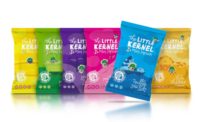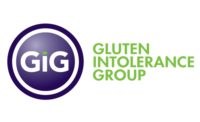
October marks Spina Bifida Awareness Month, a time of year dedicated to recognizing those living with this debilitating birth defect and educating others about strategies for preventing it. In honor of this month, I’d like to take the opportunity to share with you more information about the disease and the Grain Foods Foundation’s efforts for raising awareness about the role that enriched grains play in prevention.
Spina bifida is a condition that develops very early in pregnancy, often before a woman even realizes she is pregnant. Classified as a neural tube defect, spina bifida occurs when a baby’s spine and backbone don’t close all the way, so the spinal cord does not develop as it should. This can lead to lifelong complications, including limited mobility and learning disabilities, although no two people with spina bifida experience the same health issues.
The majority of spina bifida cases are preventable, and the leading step for prevention is adequate intake of folic acid, a B vitamin necessary for proper cell growth. It’s recommended that women of childbearing age consume 400 micrograms a day. Because spina bifida develops so early in pregnancy, all women (including teens) who become pregnant should take extra care to consume adequate folic acid, whether planning a pregnancy or not.
There are two forms of this nutrient-folate is the name for the naturally occurring form and folic acid is the synthetic form in supplements and added to food. It is found in a number of foods, including beans, asparagus, oranges, dark leafy greens and enriched grains, such as breakfast cereal, bagels, white bread and pasta. Because of its vital role in birth defects prevention, the U.S. Food and Drug Administration, Washington, D.C., mandated folic acid fortification of white flour starting in 1998. Since then, the rate of neural tube defects in the United States has decreased by approximately one-third, and enriched grains have become the largest source of folic acid in the American diet. In fact, the Centers for Disease Control and Prevention, Atlanta, recently recognized folic acid fortification of enriched grains as one of Top 10 public achievements of the last decade because of its contribution to preventing birth defects like spina bifida.
The Grain Foods Foundation (GFF), Ridgway, Colo., has a long-standing commitment to raising awareness of the importance of folic acid consumption, including outreach to the media surrounding National Birth Defects Prevention Month and Folic Acid Awareness Week, which takes place in January. To augment our efforts, we recently aligned with the Spina Bifida Association (SBA), which is part of the National Council on Folic Acid, both located in Washington, D.C. SBA was formed in 1973 and serves adults and children living with the challenges of spina bifida. It is dually focused on preventing spina bifida but also helping those with it lead fuller lives.
Through the partnership, GFF will be a part of SBA’s World Congress on Spina Bifida Research and Care, an international symposium gathering researchers and clinicians in the field of spina bifida to discuss strategies for care and prevention. The next conference will be held March 11-14, 2012 at the Cosmopolitan Hotel in Las Vegas.
We will also contribute to the Spina Bifida University, an online educational platform that lives on the SBA website and features videos about the disease. We have specifically been asked to contribute an educational video on the importance of folic acid for preventing spina bifida. Currently, only a Spanish-language version exists, and we are excited to produce an English-language version to further the reach of this vital information. Finally, we will continue our ongoing distribution of the “Bread Trail” video public service announcement, now including the SBA logo. The PSA is a wonderful opportunity to reinforce our joint messaging, as it has aired nearly 38,000 times, earning more than $18 million in equivalent advertising value since its debut in 2008.
We look forward to the start of a productive partnership with SBA. With their help, we will continue to represent the important contributions of our industry’s products to the health of babies and mothers everywhere.



